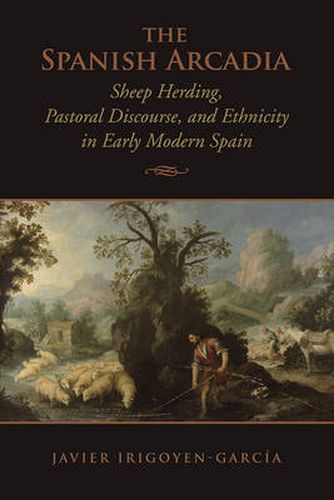Readings Newsletter
Become a Readings Member to make your shopping experience even easier.
Sign in or sign up for free!
You’re not far away from qualifying for FREE standard shipping within Australia
You’ve qualified for FREE standard shipping within Australia
The cart is loading…






The Spanish Arcadia analyzes the figure of the shepherd in the sixteenth- and seventeenth-century Spanish imaginary, exploring its centrality to the discourses on racial, cultural, and religious identity. Drawing on a wide range of documents, including theological polemics on blood purity, political treatises, manuals on animal husbandry, historiography, paintings, epic poems, and Spanish ballads, Javier Irigoyen-Garcia argues that the figure of the shepherd takes on extraordinary importance in the reshaping of early modern Spanish identity.
The Spanish Arcadia contextualizes pastoral romances within a broader framework and assesses how they inform other cultural manifestations. In doing so, Irigoyen-Garcia provides incisive new ideas about the social and ethnocentric uses of the genre, as well as its interrelation with ideas of race, animal husbandry, and nation building in early modern Spain.
$9.00 standard shipping within Australia
FREE standard shipping within Australia for orders over $100.00
Express & International shipping calculated at checkout
The Spanish Arcadia analyzes the figure of the shepherd in the sixteenth- and seventeenth-century Spanish imaginary, exploring its centrality to the discourses on racial, cultural, and religious identity. Drawing on a wide range of documents, including theological polemics on blood purity, political treatises, manuals on animal husbandry, historiography, paintings, epic poems, and Spanish ballads, Javier Irigoyen-Garcia argues that the figure of the shepherd takes on extraordinary importance in the reshaping of early modern Spanish identity.
The Spanish Arcadia contextualizes pastoral romances within a broader framework and assesses how they inform other cultural manifestations. In doing so, Irigoyen-Garcia provides incisive new ideas about the social and ethnocentric uses of the genre, as well as its interrelation with ideas of race, animal husbandry, and nation building in early modern Spain.